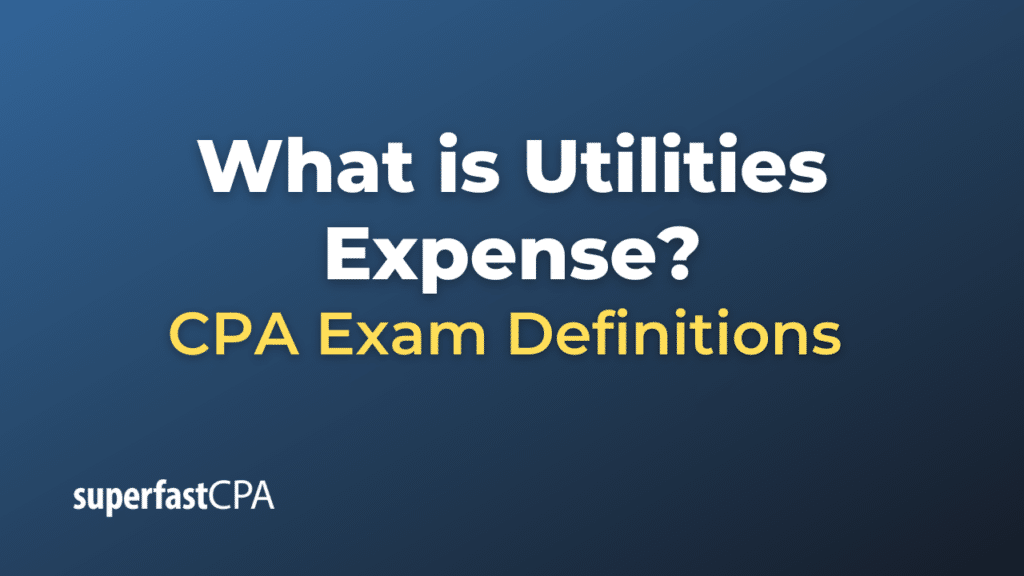Utilities Expense
Utilities expense refers to the cost incurred by a business or individual for the use of basic utilities such as electricity, water, gas, and heating. These are necessary for the operation of the business or the functioning of a household and are usually consumed on an ongoing, regular basis. In a business context, utilities expense is considered an operating expense and is included in the income statement.
For businesses, utilities expense can vary widely depending on the nature and scale of operations. For instance, a manufacturing plant may incur a high utilities expense due to heavy machinery that requires a lot of electricity, whereas a small consulting firm operating in a shared office space may have a relatively low utilities expense. In most cases, utilities expense is considered a variable cost because it changes in proportion to the level of production or business activity.
Accounting for Utilities Expense
In accounting, utilities expenses are usually accounted for as they are incurred. Businesses often receive monthly bills for utilities, which are then recorded as expenses in that month’s financial statements. The entry typically involves a debit to the Utilities Expense account and a credit to the Accounts Payable account, reflecting the amount owed to the utility service providers.
Companies may also budget for utilities expense as part of their operating budget. They may use historical data and future projections to estimate what their utilities costs will be for a given period.
Understanding utilities expense is crucial for cost control and operational efficiency. Businesses often explore ways to reduce this expense through measures like energy conservation, negotiating better rates with providers, or switching to renewable energy sources, among other strategies.
Example of Utilities Expense
Let’s consider a hypothetical example featuring a small retail store called “BookNook,” which sells books and stationery items. The store is located in a busy downtown area and operates six days a week.
Scenario:
The store incurs various utilities expenses each month for electricity, water, and heating. Here’s a breakdown of a typical month’s utilities costs:
- Electricity: $1,200 (for lighting, computer systems, and air conditioning)
- Water: $100 (for restroom and cleaning purposes)
- Heating: $300 (during winter months)
Accounting Treatment:
At the end of the month, BookNook receives separate bills for these utilities. The accounting department would then make journal entries to reflect these expenses.
Journal Entries:
- For the electricity bill of $1,200:
- Debit Utilities Expense: $1,200
- Credit Accounts Payable: $1,200
- For the water bill of $100:
- Debit Utilities Expense: $100
- Credit Accounts Payable: $100
- For the heating bill of $300:
- Debit Utilities Expense: $300
- Credit Accounts Payable: $300
Financial Statements:
These utilities expenses would then appear on the income statement of BookNook under “Operating Expenses.” This would affect the store’s net income for that month.
Knowing that utilities expenses average around $1,600 during winter months ($1,200 for electricity, $100 for water, and $300 for heating), BookNook’s management might look for ways to reduce these costs. They could consider energy-efficient lighting to reduce the electricity bill, or programmable thermostats to manage heating more efficiently.
Understanding its utilities expenses also helps BookNook in pricing its products, planning for seasonal variations, and making long-term strategic decisions.
By paying attention to utilities expenses and considering them in financial planning, BookNook can better manage its operating costs and improve profitability.













